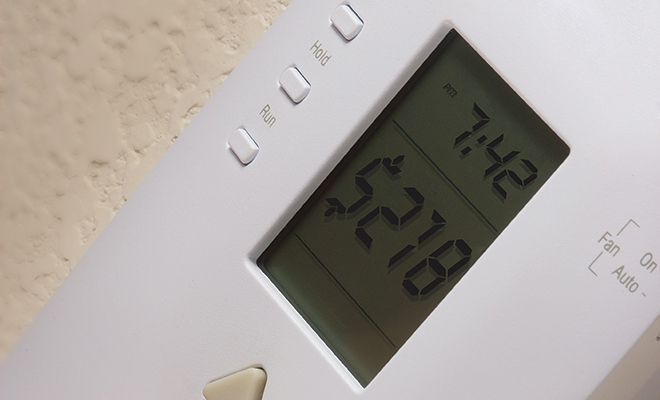
Take the Chill out of Winter Bills
I think I may have set myself up for disaster. My two younger boys are rooming together in an apartment at college this school year. Among other things, my husband and I agreed last fall to pay their utility bills. Knowing my boys’ penchant for leaving lights on, fans on and other electrical items running continually, I think we may have to take out a second mortgage to pay those monthly bills, especially as winter sets in.
I’m quite nervous about what the bills will reveal when the boys have to turn up the heat, despite having access to numerous blankets and plenty of sweatshirts. Perhaps it’s time to educate them–and the rest of us who are interested in saving money this winter–on how to take a bite out of those potentially ominous utility bills that could come our way.
Still, there are a few small things you can do before winter finally settles in. If you turn down the thermostat by just two degrees and commit to wearing a sweater, you can save nearly $180 per year on your energy bill. Are there a lot of dishes piling up in the sink? Then make sure your dishwasher is full before you start it up. Full dishwashers have proven to be more energy and water efficient, and, believe it or not, do a better job than hand washing–and with less water!
If you like to relax under the flow of a hot shower on a cold morning, consider installing a low-flow showerhead, which requires less water and, as an added bonus, requires less heat to warm the water. Go one step further and insulate your water tank and then set the thermostat two degrees lower for added energy savings.
Don’t forget about your furnace filter. If you clean it every two months, you can increase its efficiency by 50 percent. And while the weather is still somewhat cooperative, grab the caulking material and get to work. Weatherproofing your home by making sure you have enough insulation and by caulking any cracks not only eliminates uncomfortable drafts but can also save money that was literally flowing out of your home with the heat.
Another money-saving tip really hits home with me. Unplug home electronics when they’re not in use. I have always done this at home, and when all of my boys still lived at home, I would unplug their electronics; their response was always one of anger and frustration. Of course, they were not paying the electric bill. Unplugging TVs and computers, for example, when not in use, can add up to nearly $75 in energy cost savings per year.
Doing laundry can obviously suck up a lot of energy, too, but if you think ahead, you can save some money. By doing two or more loads of laundry in a row, you can take advantage of an already-warm dryer, and often most clothes are dry before the actual drying time is up, so keep an eye on that too. And be sure to clean the filter regularly. A clogged and dirty filter can increase energy use by nearly 30 percent and it can also create a safety hazard.
Other easy habits to develop this winter when committing to defeat large utility bills include sealing off rooms that aren’t currently in use. Close the doors and heating vents. By keeping the windows and doors closed as much as possible, you can retain heat in your home, which will in turn lower the amount you will have to pay for gas or electricity.
If possible, replace your old appliances with energy-efficient models. Look for the Energy Star label. By having newer, energy-efficient appliances, you can save up to $400 on utility bills annually. Another option is to replace all of those traditional light bulbs with compact fluorescent bulbs; they’re great for year-round savings and usage, but they’re more notably efficient in the winter months when the days are shorter and there are fewer hours of light. Sure, these types of bulbs cost more on the front end, but they have a much longer life span than the traditional ones–nearly ten times longer! Additionally, you can expect to save up to $60 in energy costs over the life of the bulb.
A few other helpful suggestions from the Department of Energy include opening the curtains on any south-facing windows during the day to allow the sun to heat up your home and then closing them at night to reduce chill from the windows.
You can even cover the inside of your window frames with heavy-duty, clear plastic film taped and sealed tightly to reduce infiltration.
Personally, I have come to realize that perhaps the best suggestion for me to save on my boys’ utility bills this winter, since they probably won’t read this article, is to have them pay for half of them! ■
Sources: energy.gov, greenliving.com and practicalmoneyskills.com.







